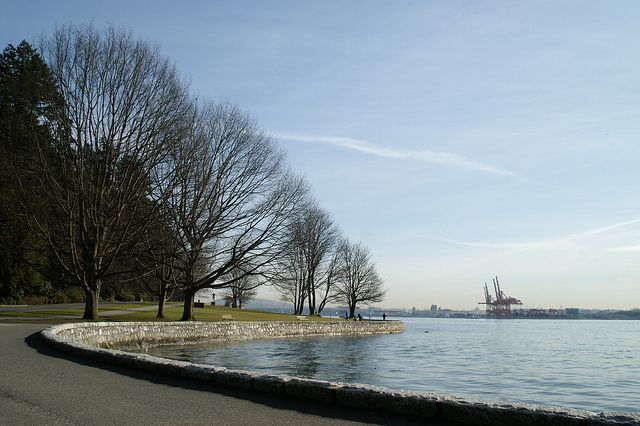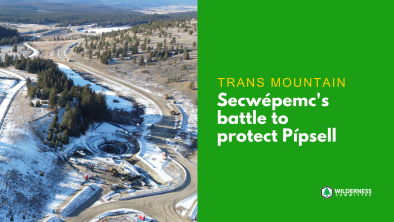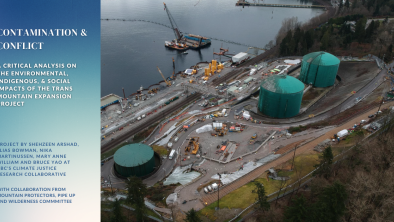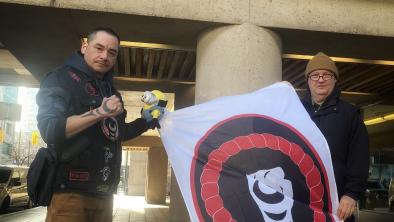Increased port tanker traffic could devastate Stanley Park: report
The Tyee

Sensitive habitat along Stanley Park's shores could be irreparably damaged if a big spill from tanker traffic were to occur, according to a new report.
"Oil Spills and Vancouver's Stanley Park," put out by the B.C. Wilderness Committee, represents the latest study by groups opposed to Kinder Morgan's plans to pump more oil sands crude through its Burnaby terminal.
The Houston-based company is expected to soon submit its Trans Mountain Pipeline expansion proposal to the federal government for review. The company has billed the expansion as essential to ensuring Canadian crude access to growing Asian markets.
But the prospect of more tankers going through Burrard Inlet has opponents stepping up their campaign to highlight just what Vancouverites have to lose.
The report "gives an opportunity for people to really visualize what is at stake in detail, rather than these broad-brush strokes we often talk about," said Ben West, communities campaigner for the B.C. Wilderness Committee. "An oil spill would be potentially quite devastating."
The report maps the location of sensitive park habitat and plots the impact from past oil spills in an attempt to highlight the risks.
West said Stanley Park is akin to a sick man facing exposure to a toxin or virus. The park's intertidal zones and waters have already been impacted by industrial pollution and shipping, and that makes them especially susceptible to an oil spill, he said.
"It's an area that we've already seen a decline of species and the weakening of the habitat and its ability to support those species. So as much as it's a lush and beautiful place, we want people to understand that this is a place that is fragile," he said.
"The risk only goes up exponentially as the number of tankers increases," West said.
Currently, roughly 20 to 80 oil tankers leave the port every year carrying jet fuel, diluted bitumen or other refined fuels, he said.
With the expansion's approval, the number of tankers passing through the port would quadruple, according to the Financial Post. A much greater proportion of those tankers will be carrying diluted bitumen, added West.
Bitumen spills have proven difficult and expensive to clean up in the past.
In July 2010, Enbridge's Energy Pipeline burst, polluting Michigan's Kalamazoo River, where cleanup costs exceeded $800 million.
A recent Tyee series also found the fumes from such a spill in an urban area could also create an evacuation nightmare. And an article in the Times Colonist raised questions over whether the province had the resources to respond to a spill if one were to occur.
West said the report was the first of a series of meetings and efforts the Wilderness Committee plans to "roll out" over the next few weeks to protest the planned Kinder Morgan pipeline expansion.
The Wilderness Committee and Tanker Free BC will host a town hall meeting tonight at 7 p.m. at the Roundhouse Community Centre to mark the report’s release.
Photo: The Stanley Park seawall. Image by Hideyuki Kamon (Flickr)


